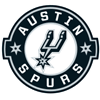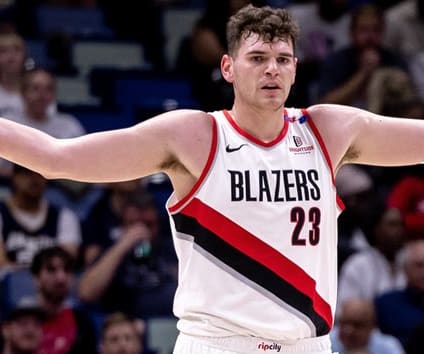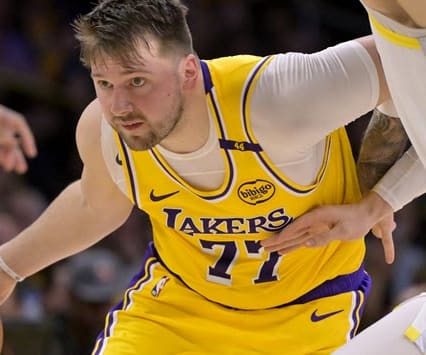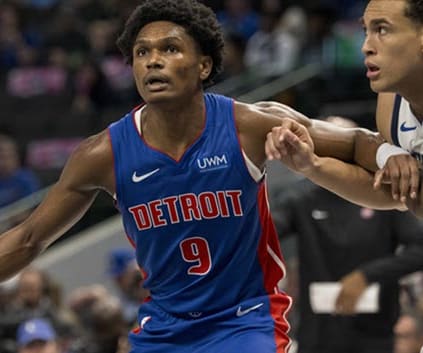2025 Stats
PTS
0.0
REB
0.0
AST
0.0
STL
0.0
BLK
0.0
ROS Projections

Narrowly misses triple-double
Payton collected 10 points (3-4 FG, 1-2 FT), nine rebounds, 10 assists and one steal in 21 minutes during Tuesday's 127-112 G League win over the Oklahoma City Blue.
ANALYSIS
Payton nearly came away with a triple-double Tuesday, pacing the team in dimes while also setting a season high in this area. The 31-year-old guard is trying to replenish his stock in the G League, but he's started just one game for the Austin Spurs so far this year.
Payton nearly came away with a triple-double Tuesday, pacing the team in dimes while also setting a season high in this area. The 31-year-old guard is trying to replenish his stock in the G League, but he's started just one game for the Austin Spurs so far this year.
NBA Per Game Stats
Per Game
Total
Per 36
NBA Per Game Stats
Loading Per Game Stats...
2024 NBA Game Log
2024
2021
2020
2019
2018
2017
2016
2025 NBA Per Game Split Stats
Schedule
By Month
Starting/Off Bench
Days Rest
Vs Opp
By Result
2025 NBA Per Game Split Stats
Loading Split Stats...
Advanced Stats
Loading Advanced Stats...
Stat Review
2024
2021
2020
2019
2018
2017
2016
How does Elfrid Payton compare to other players?
This section compares his stats with all players from the previous three seasons (minimum 200 minutes played)*. The bar represents the player's percentile rank. For example, if the bar is halfway across, then the player falls into the 50th percentile for that stat and it would be considered average.
True Shooting %
14.3%
Effective Field Goal %
14.3%
3-Point Attempt Rate
0.0%
Free Throw Rate
0.0%
Offensive Rebound %
0.8%
Defensive Rebound %
10.6%
Total Rebound %
5.6%
Assist %
21.1%
Steal %
2.1%
Block %
2.4%
Turnover %
14.6%
Usage %
9.7%
Fantasy Points Per Game
11.9
Fantasy Points Per Minute
0.6
NBA Historical Fantasy Stats
Historical ADP
Loading Historical ADP...
Past Fantasy Outlooks
2021
2020
2019
2018
2017
2016
2015
2014
This season is actually Payton's second tour of duty with the Suns, having spent 19 games with the team back in 2017-18. At that time, however, the team brought him in to be their starting point guard and, while he rewarded them with two triple-doubles in his first nine games (an NBA record), his poor shooting percentages and average defense made him expendable at the end of the season. Fast forward four years, and the former top-10 pick, who has also had stints with the Magic and Knicks with varying success (just 10.1 points, 43.2% shooting, 0.4 threes and 3.2 assists last year as a starter), is back on Phoenix. This time, it's for the league-minimum salary with lower expectations for his role on the team. He will slot in as the third-string point guard behind Chris Paul and Cameron Payne and be asked to provide leadership and playmaking ability while on the floor. Payton still has the ability to get to the rim and, with Phoenix's style of play, he should be able to effectively dish to one of the many capable shooters on the floor. However, given his limited role, Payton's fantasy production will be limited, and he's only worthy of a late-round flyer if you're banking on an injury to Paul or Payne.
More Fantasy News

Team option declined
The Pelicans declined their $3.15 million team option in Payton's contract for 2025-26 on Sunday, Michael Scotto of USA Today reports.
ANALYSIS
Subscribe now to instantly reveal our take on this news.
Subscribe now to instantly reveal our take on this news.

Shooting woes in finale
Payton totaled three points (1-5 FG, 1-1 3Pt), three assists, two rebounds and one block across 18 minutes during Sunday's 115-100 loss to the Thunder.
ANALYSIS
Subscribe now to instantly reveal our take on this news.
Subscribe now to instantly reveal our take on this news.

Posts season-high 10 rebounds
Payton finished Friday's 153-104 loss to Miami with four points (2-8 FG), 10 rebounds and 13 assists in 29 minutes.
ANALYSIS
Subscribe now to instantly reveal our take on this news.
Subscribe now to instantly reveal our take on this news.

Agrees to standard contract
Payton agreed to a standard contract with the Pelicans on Friday.
ANALYSIS
Subscribe now to instantly reveal our take on this news.
Subscribe now to instantly reveal our take on this news.

Starting sans Alvarado
Payton will start in Thursday's game against Milwaukee.
ANALYSIS
Subscribe now to instantly reveal our take on this news.
Subscribe now to instantly reveal our take on this news.
Latest Fantasy Rumors

Pushing for NBA return
Payton has joined the Austin Spurs in the G League in hopes of making an impression during the NBAGL Showcase, according to Marc Stein of The Stein Line.
ANALYSIS
Payton is one of several NBA veterans who is looking to receive an opportunity to attempt an NBA comeback during the upcoming NBAGL Showcase. The veteran floor general has proven time and time again he still has gas left in the tank to remain an NBA player. Most recently, he had a 21-assist performance during the 2024-25 season while playing for the Pelicans.
Payton is one of several NBA veterans who is looking to receive an opportunity to attempt an NBA comeback during the upcoming NBAGL Showcase. The veteran floor general has proven time and time again he still has gas left in the tank to remain an NBA player. Most recently, he had a 21-assist performance during the 2024-25 season while playing for the Pelicans.
















